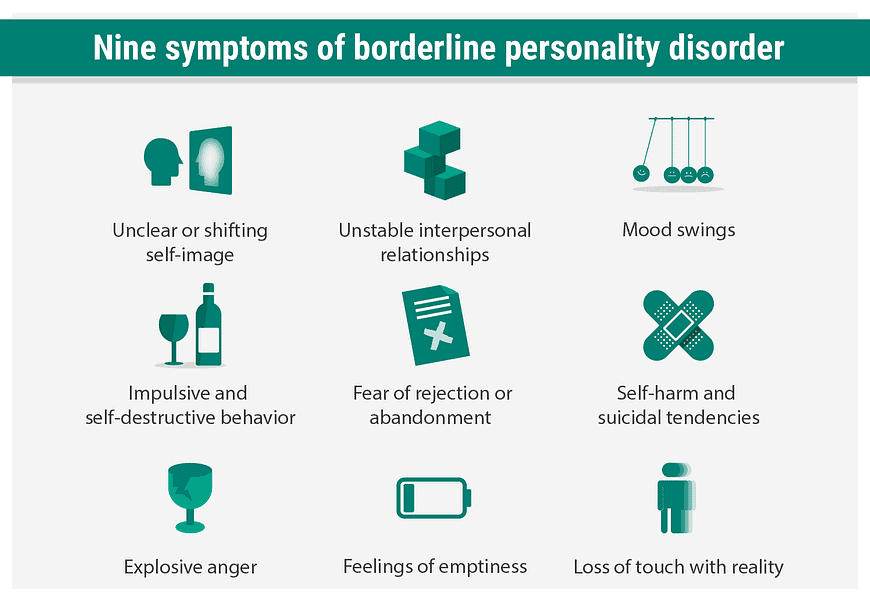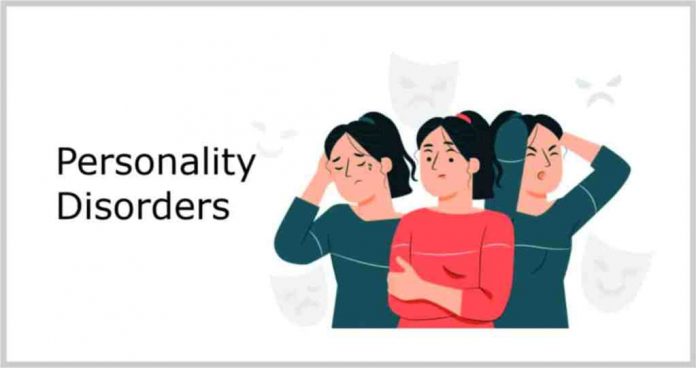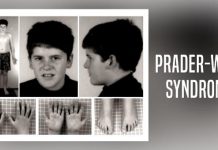Most people are familiar with mental illnesses such as depression, bipolar disorder as well as social anxiety disorder. Borderline personality disorder and such other debilitating illnesses are much less common.
Borderline personality disorder, often referred to as BPD, is characterized as a mental disorder affecting the limbic system of the brain, controlling emotions. Those suffering from borderline personality disorder exhibit extreme difficultly in adjusting their physical behavior to their actual feelings.
Symptoms of Borderline Personality Disorder

Since borderline personality disorder is indeed a chronic mental illness, it presents such alarming symptoms associated. Someone affected may show an incredible fear of abandonment whether real or imagined. This great fear is also accompanied along with a strong but unhealthy connection to family and friends, showing intense admiration at times and incredible rage at others. A “borderline” is also known for their “black and white” way of thinking and an alternation between intense emotions of love and hate.
Along with severe feelings and emotions of intensity, those suffering from borderline personality disorder may physically comply with shocking actions. These actions are often impulsive and self destructive with examples of unprotected sex, binge eating, self mutilation and shoplifting.
Like depressives, borderlines feel profound emotions of “emptiness” and like schizophrenics, borderlines may also suffer from ongoing paranoia. If anyone is questioning their displayed symptoms of borderline personality disorder, it is more than important to speak to and contact a professional.
Causes of Borderline Personality Disorder

Borderline personality disorder is lesser known than many other mental illnesses and with that, there are unfortunately not as many answers to help those affected. Nobody actually holds a reason or specific cause to borderline personality disorder. What scientists and psychologists do believe is that BPD is attributed to both genetic and environmental factors.
Traumatic childhood events such as sexual abuse can increase likelihood of borderline personality disorder. In fact, all situations in that of forced emotion regulation can dramatically increase the chances of BPD. Events and situations include all forms of verbal, sexual, emotional and physical abuse where one was unable to express and “bottle up” true feelings.
Borderline parents are also known to often produce children affected with borderline personality disorder, though nobody knows exact statistics. Hopefully, future psychologists, doctors and scientists will take the educated effort in understanding the particular causes and statistics of borderline personality disorder.
Questioning Borderline Personality Disorder and Mental Illness
Whether it is you or a loved one, if someone shows symptoms of BPD or has dealt with cases of extreme abuse it is important to speak to a professional. Professional help cannot be stressed enough in these situations of mental health as it is virtue to seek and obtain proper medical care. Borderline personality disorder is unknown by many and those in suffering can feel helpless.
This helplessness and hopelessness is unnecessary with many dedicated to aid those suffering from emotional discomfort. Mental health is just as important as physical health and can be attained with help of professional guidance, even in the most excruciating and seemingly hopeless circumstances.


















